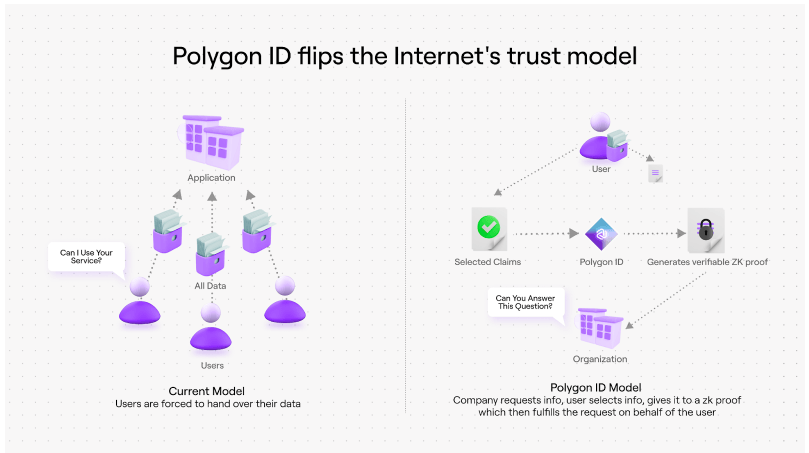On Wednesday (June 22), decentralised Ethereum scaling platform Polygon announced that it is “launching the first iteration of Polygon ID – a private and self-sovereign identity solution powered by zero-knowledge cryptography.”
Polygon’s blog post started by explaining what problem they were trying to solve:
“Too often, we’re forced to trade personal data for access to the most basic of services on the web. At the same time, developers need ways to ensure that their users are interacting with other real humans on the platforms they participate in, among many other identity based needs.“
Polygon ID, which was introduced last month, “puts users in complete control of their digital identity, allowing them to prove specific aspects of their identity without revealing any personal information.”

Polygon ID is powered by zero-knowledge protocol, which is “a method by which one party (the prover) can prove to another party (the verifier) that a given statement is true while the prover avoids conveying any additional information apart from the fact that the statement is indeed true.”
Polygon says that it has combined the Iden3 protocol and Circom ZK toolkit to “create the most powerful application of ZK technology that can run on a mobile device,” and that Polygon ID “allows the expression of identity attributes as claims that can be used to generate a zkSNARK Proof to privately interact with smart contracts, dApps, Web3 services and other identities in order to prove aspects of the identity without giving away any personal information.”
Polygon’s blog post went to deliver some great news for decentralized autonomous organizations (DAOs):
“DAOs can now issue ecosystem-wide attestations about their members in a fully private and permissionless way. Consequently, DAOs can verify attestations about their users without the need to actually collect any private information, trusting solely the ZK proof, and the source of trust (the issuer). Those attestations can then be used within governance to assist in decision making, or any other system like incentive distribution, e.g., targeted airdrops.“
Polygon says that “over the coming months, the Polygon ID ecosystem will grow to include a set of tools, platform services and examples for developers to learn, test and integrate with their apps or dApps leveraging Polygon ID’s unique on-chain capabilities.”
Here is what went live yesterday:
As you can see in the five-day MATIC-USD price chart below from TradingView, on crypto exchange Coinbase, shortly after Polygon’s announcement came out around 4:00 p.m. UTC on June 22, the $MATIC price started surging, and by 6:00 UTC on June 23, it had surged to $0.5111. Currently (as of 7:58 a.m. UTC on June 23), $MATIC is trading around around $0.50, up 25.78% in the past 24-hour period.









